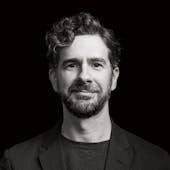Acre by acre, families have lost long-held property near Bryan and College Station—much of it to the efforts of two men who weaponized arcane documents to acquire plots potentially worth millions.
I can still smell its heavenly aroma.
The names have changed over the decades, but through it all, Texas remains a place where money gets made—and spent.
Brad Lomax was stoked until he found himself fighting Mother Nature and supervising 1.5 million babies.
Melissa Maerz’s new book is a raucous reunion for the cast and crew of the film, whose depiction of the insecurities and thrills of teenage life have made it timeless.
With its industry reeling, the Fort Worth–based airline giant is quietly betting that diminished competition will keep passengers coming—even as they grumble about the carrier’s poor service, late arrivals, and the jam-packing of its flights amid the pandemic.
One editor remembers his former boss as unreasonably demanding—and unafraid of investing in great journalism.
The rural area lost both its hospitals. Can a telehealth station in Cameron fill the urgent-care gap?
Nutritionists have debated for decades the risks and benefits of eating red meat. But now the fight is getting ugly, with each side accusing the other of conflicts of interest.
The annual mock-government summer camp—which I attended in 1995—hits the national spotlight thanks to an engaging new documentary.
Automated helpers, like Diligent Robotics’ Moxi, could reduce the risks to frontline medical workers.
To trace the disease’s spread, the Dallas County medical examiner has set out to screen all of those who end up in his morgue.
These themes, which he returns to again and again in his movies, illustrate how he's developed as a filmmaker.
For decades, the Texas director’s movies have celebrated the sort of mundane yet consequential interactions that the coronavirus took from us. He’s still at it, albeit temporarily cut off from the film community he helped build.
After the pandemic, will Texas's wide open cityscapes lure big business?
UT epidemiologist Lauren Ancel Meyers spent her career planning for infectious disease outbreaks. She has had to rapidly adapt to the very different challenges posed by the novel coronavirus.
The inside story of the Dallas-born luxury retailer’s struggle to remain relevant—and solvent.
President Trump elevated him from MD Anderson Cancer Center to the FDA just in time for the untested federal official to face a global pandemic.
In his first interview since taking the reins, MD Anderson’s former chief medical executive discusses the need to modernize.
The longtime PBS news anchor’s influence grew out of his objective and ethical approach to covering the news.
Chancellor John Sharp pens a strongly worded defense of the integrity of his university’s work.
Texas A&M wants to transform medicine by training a generation of innovation-minded physicians.
A Rice University professor's recent breakthrough may mean that a science fictional scenario is within reach.
A conversation with Ben Lamm of Hypergiant, on solving climate change, the surveillance state, and our automated future.
Academy Award winner Brandon Oldenburg discusses conceptualizing War Remains, an interactive virtual reality experience.
The team is abandoning 25-year-old Globe Life Park for a shiny new stadium next door.
With a new gene therapy center almost completed, the medical center is providing hope for families who previously had little.
In a discussion with Texas Monthly last week, Johnson spoke about the crime woes, his intention to make data-driven decisions, plans for ethics reforms, and why Dallas needs to be more selfish in its regional partnerships.
After a decade-long effort, developers says they’ve secured the funding they need for a $65 million, three-year renovation.
Although grand plans to reopen the historic Baker Hotel are still on hold, this former spa resort destination has plenty more to showcase.
Hanif Abdurraqib's new book about hip-hop pioneers A Tribe Called Quest has reached No. 8 on the New York Times list.
The silver anniversary of a birding festival highlights the contrast between the politics and the ecology of the region.


































